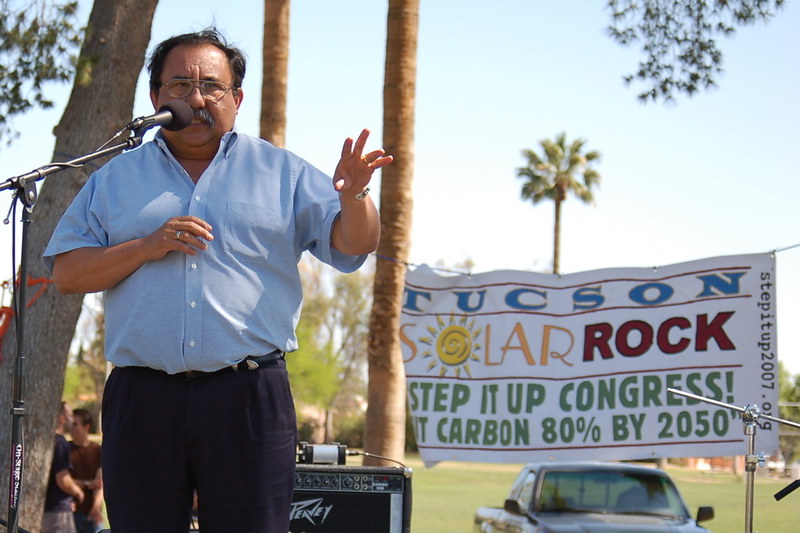TUCSON, Ariz. – The 19 firefighters who perished when 40-foot flames overtook them in a rocky canyon near Prescott in June were the victims of poor planning and bad communication, forced into a losing battle to protect structures and pasturelands that were “indefensible,” a state safety commission concluded Wednesday.
The Arizona State Forestry Division, responsible for managing the Yarnell Hill fire, now faces a $559,000 fine, one of the largest such fines ever levied in the state.
A report prepared by independent consultants to the Arizona Division of Occupational Safety and Health found that members of the Granite Mountain hotshot team were called on to fight the fast-moving blaze outside the town of Yarnell with inadequate briefing, no good maps and radios that left them without good communication with incident commanders.
“We found no evidence that a risk assessment for the strategies and tactics were examined,” said the report, prepared for the state by Wildland Fire Associates. Fire overseers “reported flame lengths of 40 feet with rates of speed up to 16 miles per hour occurred, yet no one seemed to recognize these signs as trigger points that should have led to a change in tactics and relocation of (the crew),” it found.
Wednesday afternoon, the Arizona Industrial Commission voted unanimously to accept the findings of the report, which also called for payments of $25,000 to dependents of each of the 19 firefighters.
Arizona State Forestry officials said they had not yet reviewed the safety agency’s report. Fire officials have 15 days to appeal the findings, said Abbie Fink, Arizona Division of Occupational Safety and Health spokeswoman.
The voluminous report found that a combination of safety violations _ including lack of critical personnel, incomplete analysis and hours-long delays _ took place during the fire, which burned more than 8,000 acres of wild land and destroyed over 100 structures.
Like a previous report prepared by state fire investigators in September, the new examination found that the Granite Mountain crew was caught off guard when a sudden change in wind sent towering flames suddenly racing toward homes in Yarnell _ and toward the crew, which had left its previous zone of relative safety.
At a meeting Wednesday afternoon, Marshall Krotenberg, the safety compliance supervisor for the Arizona Division of Occupational Safety and Health, outlined myriad violations to commissioners.
Forestry officials failed, for example, to include safety officers in crucial coordination meetings because of unexplained delays, he said.
“Apparently the ball got dropped,” Krotenberg said. He said safety officers during those gatherings would have made a difference.
On several points, he criticized what he called fire management staff’s ill-advised decision to prioritize protection of structures over firefighter safety.
“After looking at all the facts, I believe it’s just too risky to stay that long in an attempt to protect structures that have been deemed indefensible,” Krotenberg said.
While fire officials had been given daily afternoon thunderstorm reports, there was never a plan to account for such a weather event, he said.
The safety agency’s report is a departure from the September report that found no evidence of recklessness or negligence in the Yarnell Hill wildfire.
The earlier report, produced by a team of local, state and federal investigators convened from around the country, “found no indication of negligence, reckless actions, or violations of policy or protocol,” but did note some problems with radio communication.
That report was commissioned by the state forestry division, which is now subject to the workplace safety penalties.
Marcia McKee, the mother of Grant McKee – one of the 19 firefighters who died – called the previous state report a “whitewash” in a claim she filed against the state, the city of Prescott and Yavapai County officials.
“Its primary goal is to avoid blaming anyone,” said the claim filed on Nov. 14. “As a result, a trusting, uninformed person reading the Yarnell Hill Fire Report uncritically would think that the death of 19 men was just bad luck and no one’s fault – which is false.”
McKee’s claim seeks $36 million.
Wednesday’s report notes that there were management planning issues from the beginning.
An initial attack on the blaze on the morning of June 29 was delayed because a helicopter large enough to move the crew safely was not available, the report found.
“People with local area expertise did not tell (them) about local trails and roads that could be used to hike in to the fire. By mid-afternoon, on June 29, the fire jumped over the two-track trail,” according to the report. “The initial attack forces had clearly failed to stop the fire and put it out in a manner consistent with firefighter and public safety and values to be protected.”
Also at issue was the handing off of the initial fire incident command team to the one that took over on June 30.
The second crew took over command even though certain key members of the team hadn’t arrived yet, the report stated.
The ultimate result was confusion and miscommunication, according to the findings.







